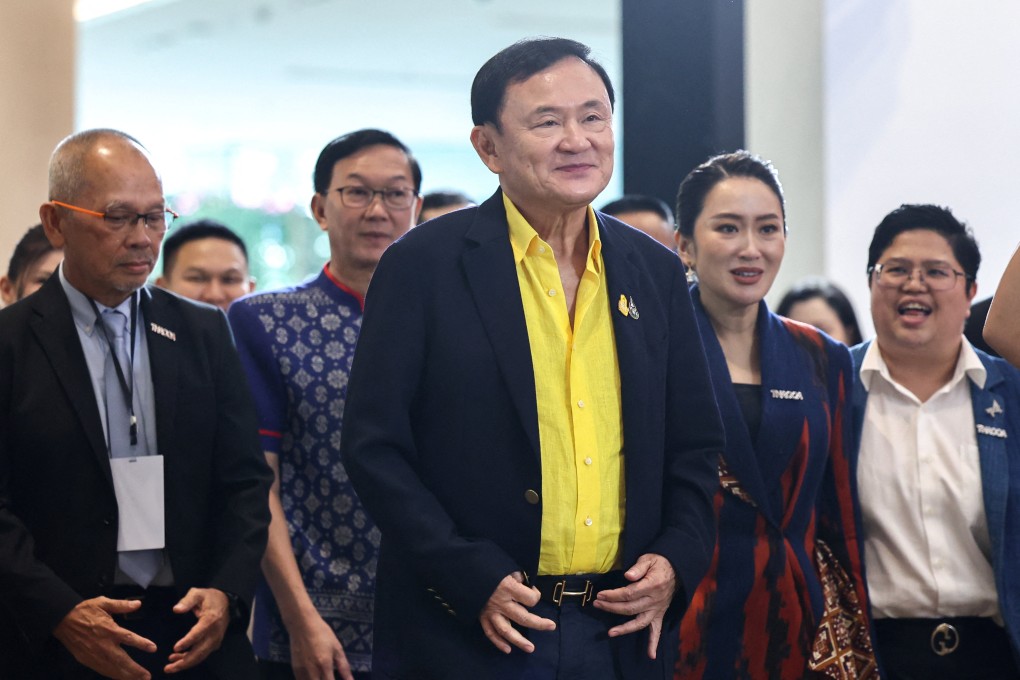Asian Angle | Is Thailand’s grand compromise between Thaksin and his political foes at risk of collapse?
- The unlikely alliance could yet stand the test of legal and political pressure despite four seemingly interconnected high-profile cases

When important political events coincide, they inevitably seem intertwined.
It is now a foregone conclusion that a grand compromise was made to facilitate Thaksin’s safe return and Srettha’s rise to the prime minister post. In exchange for keeping the Move Forward Party out of power, the Pheu Thai party was allowed to govern, although the exact terms and conditions remain largely opaque to most of the Thai public and possibly many elites as well.
According to a survey conducted by polling institution NIDA a day later, more than two-thirds of respondents reported believing in the existence of a secret deal, while nearly half believed there was an attempt to topple the Srettha government.

Under normal circumstances, the wisdom of the crowd and the simplest explanation would turn out to be accurate: the grand compromise is collapsing or being renegotiated. This is presumably due to Thaksin overstepping the boundaries set by the initial agreement – for example, by failing to stay at home and remain uninvolved in politics or by encroaching upon the military’s authority and control over promotions and appointments. Consequently, the assumption is that Thaksin and Srettha are either being punished or held hostage as a means to ensure that Pheu Thai adheres to the agreement.

